Tests performed at the centre
- Electrocardiogram (ECG)
- Cardiac ultrasound
- Stress test
- Arterial Doppler ultrasound of the neck vessels
- 24h ECG Holter
- Pacemaker-Defibrillator Control (St Jude Medical/Abbott and Biotronik) - Dr Tudor Mihailescu
ELECTROCARDIOGRAM (ECG)
An ECG is a test that measures the electrical activity of the heart. For this, electrodes (usually 10) are placed on different parts of your body (chest, arms, legs). The test is carried out lying on your back or sitting on a bicycle if carried out during a stress test.
The test takes between five and ten minutes.
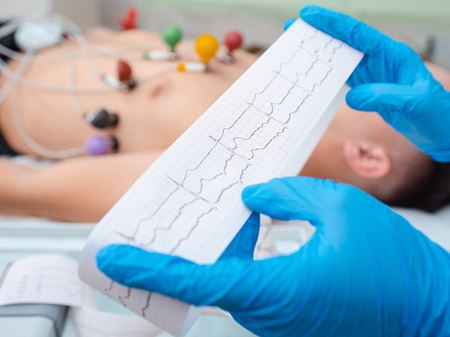
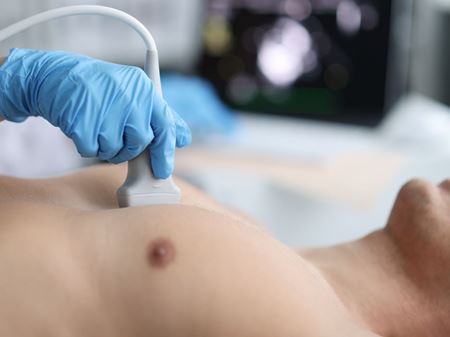
CARDIAC ULTRASOUND
This examination uses ultrasound to trace an image of your heart in real time. It is commonly combined with a doppler examination: this is known as a cardiac ultrasound-doppler examination. The waves recorded show the shape, texture and movement of the heart valves, as well as the volume and function of the heart cavities. It also allows to observe the blood flow inside the heart. The patient lies on the left side with his shirt off and the doctor applies the gel-covered ultrasound probe to the chest.
The time required for a cardiac ultrasound examination can vary between 10 and 30 minutes. It is a painless and safe test, and it is not necessary to be fasting.
Stress test
A stress test is a test that records how your heart responds to sustained physical exercise. The cardiologist will ask you to pedal a stationary bike and electrodes will be placed on your chest to measure the electrical activity of the heart, blood pressure and heart rate during exercise. The patient cycles at a constant speed and the resistance is gradually increased: the effort becomes more and more difficult. The test is stopped when the maximum exercise capacity is reached or if symptoms appear.
The duration of a stress test can vary and lasts on average 15 minutes. It is advised to wear comfortable clothing for this test.
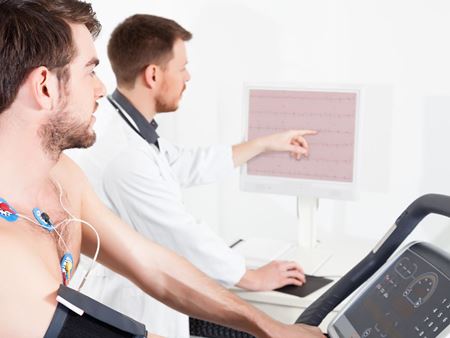
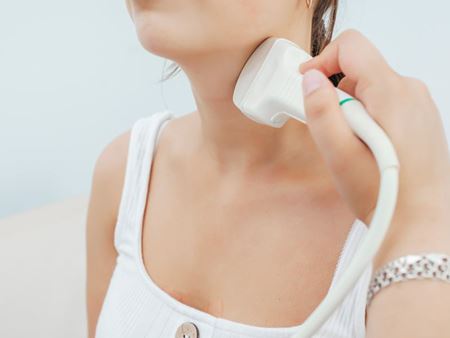
ARTERIAL ECHO-DOPPLER OF THE NECK VESSELS
This test assesses the blood flow in the carotid and vertebral arteries (the main arteries in the neck). It allows the detection of narrowing (which can explain strokes) and of possible cholesterol deposits.
It allows the cardiologist to determine your personal cardiovascular risk and to determine the most appropriate treatment in case of high cholesterol.
24H ECG Holter
The ECG holter is a 24-hour electrocardiogram recorder. It is an examination designed to highlight a heart rhythm disorder. It is more complete than a simple electrocardiogram because it lasts 24 hours and takes place in a normal life setting whether you are active or resting. Five electrodes will be placed on your thorax according to a precise diagram. The device will be connected to it and placed in a shoulder bag.
This examination is painless and does not interfere with your daily activities. There is no need to be fasting for the installation of the device and there is no risk. It is better to wear loose-fitting clothing that is not low-cut to prevent the electrodes from being visible. Showers are not permitted with the device.
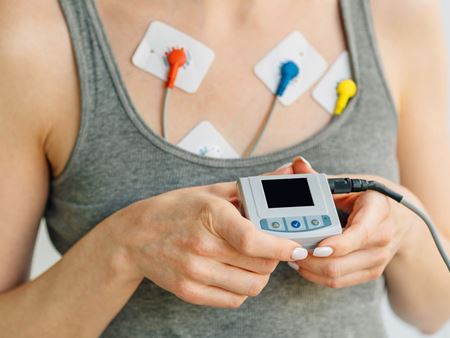
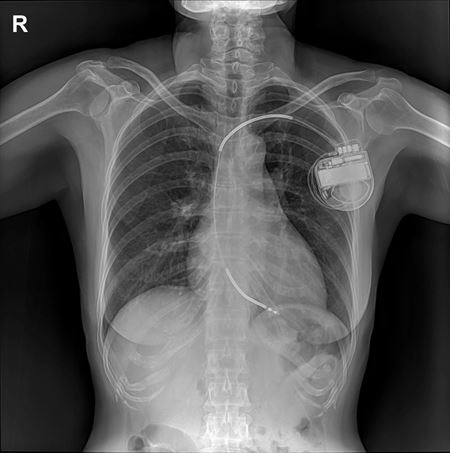
PACEMAKER-DEFIBRILLATOR MONITORING
The monitoring of a pacemaker must be done regularly by a cardiologist. It allows:
- to see if the battery is working properly,
- to check whether the battery charge level is correct so that the pacemaker can be replaced in time,
- to check the integrity of the sensors,
- to detect certain heart rhythm disorders for models with a monitoring function (holter), which is the case if the battery is recent.
Each brand of battery has its own interrogation equipment.
TYhe Walzin Medical Centre is equipped to monitor St Jude Medical/Abbott and Biotronik pacemakers/defibrillators. Checks are carried out by Dr Tudor Mihailescu only.


